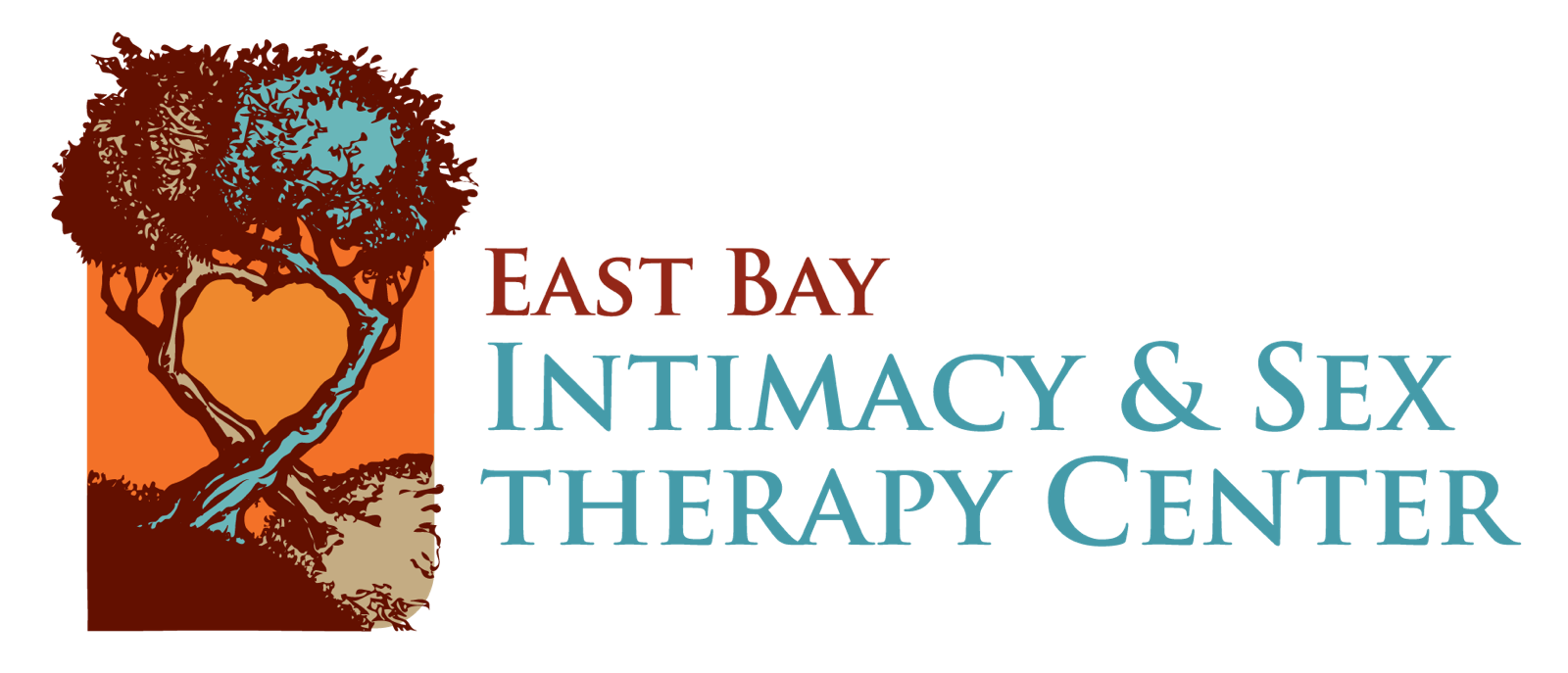Our East Bay Couples Counseling & Sex Therapy Approaches
East Bay Intimacy & Sex Therapy Center
Our highly specialized clinicians utilize innovative treatment modalities for relationships & sex issues, trauma, and attachment healing.
Our highly skilled East Bay sex therapists, marriage counselors, couples therapists, and individual psychotherapists & clinical psychologists are trained in at least one of the following modalities.We provide the most progressive evidence-based mental health services the San Francisco Bay Area has to offer.
PSYCHOBIOLOGICAL APPROACH TO COUPLES THERAPY (PACT)
PACT facilitates intimate secure functioning and helps couples feel more connected through the awareness as a couple of the moment-to moment shifts in one's face, body, and voice. This approach is based on our biological need to bond with others as well as providing a physiological basis for understanding how our brains work. Some areas of our brain are wired to reduce threat and danger and seek security, while other areas are connected to mutuality and loving connection. It is rooted in attachment and intimate connection.
EMOTIONALLY FOCUSED COUPLES THERAPY (EFT)
Emotionally focused therapy was developed by Dr. Susan Johnson. It is a highly effective, evidence-based modality that focuses on emotions and attachment needs. The goal is to help clients identify, explore, experience, make sense of, and manage their emotional experience. This type of marriage counseling was first developed for couples, but it has proven useful for family counseling as well. Dr. Johnson’s method is used worldwide in hospitals, clinics, private practices, and training centers. Although emotionally focused therapy is helpful in most situations, it especially should be considered if depression is a suspected culprit of relationship woes.
Typically a short-term approach, emotionally focused therapy has three main goals. It encourages the expansion and reorganization of key emotional responses. It seeks to secure a tight bond between you and your partner. The therapy repositions each partner’s stance during interactions and creates new, beneficial interactions in your partnership. Emotionally focused therapy has been found to move 70 to 75% of relationships from a troubled state to a state of recovery. Significant improvement has been realized for 90% of couples using this therapy.
GOTTMAN METHOD
Gottman Method Couples Therapy has the benefit of three decades of research and practice in clinical settings with more than three thousand couples. The Gottman Method uses couples counseling techniques to increase affection, closeness, and respect. These techniques help you resolve conflict when you feel like you’re at an impasse. You and your partner learn to understand one another and to discuss problems calmly.
The Gottman Method of couples counseling shows you how to build love maps, which help you learn about your partner’s psychological world by mapping your partner’s worries, stresses, joys, hopes, and history. Fondness and admiration are strengthened by expressing respect and appreciation for each other. This is a method of couples therapy that allows you to state your needs, and it stresses conflict management rather than conflict resolution.You and your partner learn to speak honestly about your aspirations and convictions. Trust and commitment to a lifelong relationship are reinforced.
SEX THERAPY
Sex psychotherapy addresses issues such as: arousal and desire concerns, desire discrepancies within a couple, difficulties with climax, emerging sexual identities, development of intimacy, open relationships and extra-marital affairs, diversity of sexual expression, cybersexuality, sexual trauma and rape, socio-cultural factors associated with sexuality, and painful sex. At East Bay Intimacy & Sex Therapy Center, our leading San Francisco Bay Area sex therapists and couples counselors utilize a unique blend of attachment based sex therapy to facilitate a deeper intimate sexual partnership.
ACCELERATED EXPERIENTIAL DYNAMIC PSYCHOTHERAPY FOR COUPLES (AEDP)
Accelerated Experiential Dynamic Psychotherapy for Couples is an innovative, somatically focused model, which effectively treats the relational trauma and deprivation that underlies much marital dysfunction. By powerfully creating a safe container for even highly dysregulated couples to relate to each other in a more attuned way, new responsiveness begins from the first session. AEDP for Couples Therapy's goal is to restore access to one's full ranges of emotions that play a powerful role in healing one’s relationships. AEDP for couples works by generating connection and healing the underlying deprivation and trauma which causes distance in a partnership.
Powerful aspects of AEDP for Couples include:
- Focus on healing attachment trauma in the couple as well as in each individual
- Use of self of the therapist in transformative work with chronically traumatized couples
- Cutting edge neuroscience that informs the accelerated treatment of relational trauma
- Cultivating whole body “witness consciousness” of perceiving and expressing “the seven channels of experience”
INTERNAL FAMILY SYSTEMS:
This model of psychotherapy offers a clear, non pathologizing, and empowering method of understanding your problems. It is an innovative philosophy of practice that believes that everyone in their core has leadership qualities i.e.. perspective, confidence, acceptance, and compassion. IFS Model has evolved over the last 20 years into a comprehensive approach that includes guidelines for working with individuals, couples, and families.
IMAGO RELATIONSHIP THERAPY
Imago Relationship Therapy combines spiritual and behavioral techniques with western psychological techniques of therapy to expose unconscious components that help you choose your mate. In this way, you and your partner are equipped to relate to each other in positive, caring ways. The therapist views the couple’s conflict as a solution to the situation rather than the problem. Examination of the conflict is the key to finding a solution to disharmony.
Emotional discord in a relationship is often expressed as dissatisfaction, criticism, or anger. This forces you to seek comfort from people outside your relationship. Imago Relationship Therapy examines the root of negative emotions and behaviors to find the cause of severed communication between you and your partner. Acknowledgment that each partner is communicating differently helps resolves problems. Partners learn that disagreements aren’t signs of love loss but are normal occurrences in relationships that can be resolved through communication.
PSYCHODYNAMIC PSYCHOTHERAPY
Psychodynamic therapy promotes healing, awareness and change via exploring the unconscious roots of problems. Some psychologists and couples counselors utilize a psychodynamic approach to therapy. The purpose is to bring the unconscious roots of a problem to the surface, whether the problem belongs to one or both partners. This form of couples counseling is most useful when irrational patterns of reacting exist. The belief of a psychodynamic counselor is that significant life events and childhood experiences shape peoples’ behavioral tendencies. Such experiences may create an unfulfilled need or a distorted view of reality that leads to dysfunctional behavior. Insight into these events serves to change perceptions, and functional patterns of behavior are realized.
Situations, such as childhood abuse or an unfaithful parent, can lead to unreasonable expectations in a relationship. Unreasonable expectations sometimes cause irrational distrust or jealousy. During couples counseling, the therapist explores major past experiences in order to change distorted perceptions and eliminate irrational reactions to current events.
The Goal is to help couples develop self-awareness and understanding of the influence of the past on the present behavior. Also known as insight-oriented therapy focuses on unconscious processes as they are manifested in a person's present behavior.
GESTALT THERAPY
Gestalt therapy involves focusing on whatever arises in the here and now including bringing awareness to the many parts within you. The belief is that healing happens in present moment awareness between therapist and clients. Couples will learn healthier communication, conflict resolution, how to get their needs met, and rebuilding trust and mutual respect.
NARRATIVE THERAPY
Narrative therapy seeks to separate the problem from the person by externalizing issues of concern. A therapist will ask you to describe your problems in narrative form, and then help you to rewrite the negative parts of the story. By acknowledging a problem doesn’t define a person but is something a person has, you gain new perspective on the situation. Narrative therapy helps you view your problem from different angles: culturally, politically, and socially. By stating negative issues in the narrative form, you become the dynamic in the story. The dynamic has the ability to change the story. Narrative therapy allows you to explore the past to bring to light negativities that otherwise remain hidden. By exploring conceptions and behaviors, you gain insight into facts that have been troubling you and your partner. Thus, you find new ways to deal with your problems, effectively rewriting the narrative of your relationship.
ENHANCING INTIMACY TO PROMOTE CLOSENESS
Couples therapy is helpful regardless of whether problems exist in your relationship. Couples therapy isn’t just limited to deflecting or solving problems; it also promotes closeness and intimacy in a partnership. Counselors help couples enrich their lives by aiding the development of friendship and ways to show affection. By providing exercises to increase mutual support, therapists teach couples how to overcome existing issues and how to make relationships resilient. Learning how to tackle challenges without the aid of therapy is as important as overcoming any problems you are experiencing presently.
Seeking counseling that encourages intimacy is helpful for couples having difficulties in a relationship. Undergoing this type of counseling before making a major commitment is beneficial to the future of your relationship. Some couples find this sort of therapy helpful in an existing relationship that is devoid of problems.
POSITIVE PSYCHOLOGY
Positive psychology emphasizes positive emotions, character strengths, and constructive institutions to promote the notion that happiness is derived from various mental and emotional factors. Positive psychology helps you identify happy moments as they happen rather than notice those moments in retrospect. Through this type of therapy, you learn to focus on positive emotions and to live in the present moment. Many couples find positive psychology liberating and joyful. Specialists believe perception dictates happiness from one event to another. Some people can’t identify emotions as they arise but can see them clearly in hindsight. One technique uses beepers or pagers. The therapist beeps clients to remind them to record the experiences the clients are currently having. Clients expand upon these entries in a journal detailing the previous day. This practice conditions you to enjoy moments as they are experienced.
ANALYZING THE WAYS YOU COMMUNICATE
The inability to communicate in healthy ways is the basis for the majority of problems in a relationship. Conflicts are bound to arise in partnerships, but by learning to communicate your positions clearly, you can turn conflict into constructive discussion. Communication is a skill that requires conscious effort. What may seem clear to you may not always be fully understood by your partner. It’s important for you to speak your mind rather than to expect one another to read moods and body language, which are open to misinterpretation.
Analysis of the methods you and your partner use to communicate offers insight into misinterpretation. A therapist can guide you toward functional forms of communication that alleviate misunderstandings. Learning new ways to communicate can seem unnatural at first but will help you and your partner to support and nurture each other.
INDIVIDUAL COUNSELING
Individual counseling is recommended when one partner is unwilling to undergo therapy or as a precursor to couples therapy. If both partners are not able to seek help with methods of communication, couples counseling can be ineffective. A common issue with individual therapy arises with the client’s right to privacy. Some therapists insist their clients waive their rights to privacy before the therapist will work with partners individually. The best outcome can be expected when both partners are committed to counseling, even if they aren’t firmly committed to the relationship. For a counselor to have a good idea of what is causing conflict, each partner should attend sessions together or separately.



